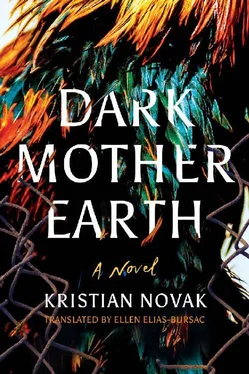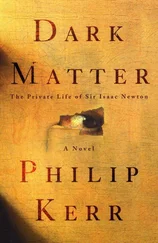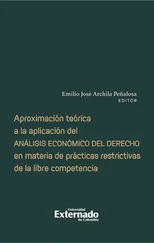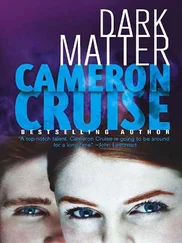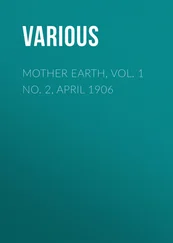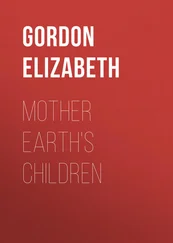I often heard yelling from the Klanz house. At first I had the impression that Franz was a bit dense, but he talked a lot and fast, and he repeated words and sentences, so I started doing the same. His special talent was saying words backward. He was proud of this, because neither of us knew anybody who was as smooth at it as he was. We had every reason to believe he was the world champion at saying words backward. He was Znarf, or Ojnarf, Znalk, and I was, Ajitam Cečnelod. He explained that the secret was to picture the word and then flip it around. I liked him because his head was too big for his body, and I thought that as he got bigger his head would grow, too, and nobody would want to play with him. His eyebrows were always arched in the middle, which made his eyes look sad, but his mouth always stretched to the sides as if he were smiling. This made him look happy and sad at the same time. I saw no contradiction in this. Every day at home his eyes saw ugly things, but his mouth didn’t.
We went to school and Mass together. He’d talk, and I’d be quiet and sit with my thoughts. When I was with him, in a strange way it was like I was by myself. When I was there without him, it seemed like I wasn’t really there, or that I was somebody else. I didn’t always listen to what he was saying, but I was glad for his company. He talked, and I looked at my toes in the grass, and that was enough that day for me to count myself among the happier beings.
In early May 1991, about two weeks before the suicides began, the killing had already started in eastern Croatia, and people in the village spoke with a terrible satisfaction about the special forces and the massacre at Borovo. Franz and I were worried about our first soccer league meeting. For days he’d wondered if they’d choose him to be goalie. He asked if we should go alone or with his dad. I was scared of his dad, so I suggested we go alone. There hadn’t been a junior league in our village before, but Goran Brezovec, son of the new village head, had reached junior soccer age, so a team was in the making. Within a few years, they said, there’d be a generation of strong young players. The coach was going to be Bogdan from Mursko Središće, who’d played for the Miners some years back and was famous for having slid into the best player from the neighboring village and breaking both of his legs. After that he drank for free at both bars in our village. When we got to the field, Bogdan was in a heated discussion with some men. His gaze was glassy, and his pudgy, ruddy, calloused face hinted that he often enjoyed his drinking privilege.
Franz and I didn’t know where to stand, so we waited by the fence and eavesdropped on some grown-ups. A smallish man was saying what a little skeezicks his boy was, how he was as good as the older boys, how quick and nimble he was. I tried to figure out who he was pointing to, and it turned out he meant Krunek, who was maybe the clumsiest of them all. He was too tall, and when his feet struck the ground, they weren’t in line with his knees and hips. He couldn’t hang on to the ball; somebody would kick it out from beneath him every time. At one point he fell, and all three men stopped talking.
“Krunek, come here,” yelled the little man. “Just wait till you see him do his push-ups. He does fifty like it’s nothing. I’ve been coaching him myself. Yep, indeedy, that’s my boy. Krunek, show us your push-ups.”
“Now don’t push yourself so hard, Krunek, don’t tucker yourself out before the training starts,” cautioned Coach Bogdan.
Krunek threw himself to the ground and began doing push-ups. He did the first four at the same pace, the fifth and sixth slower, and after the seventh his arms started wobbling. His shoulders sagged, and his head hung down, as if all he needed was to catch his breath for a minute and then he’d pump another forty in no time flat, but nothing happened. An awkward silence settled in, interrupted by Krunek’s dad: “Well, what’s wrong? Do it.”
Krunek took a deep breath, shoulders sagging, and lowered himself one more time but couldn’t push himself back up, and so he collapsed on the ground. His father hoisted him up and shook him, supposedly for getting mud on his shorts. The men went on talking soccer, and I began telling Franz about my dad.
I told him how my dad had played soccer in Germany and had been able to nail bicycle-kick goals, so his teammates had carried him on their shoulders and bought him a car that went over a hundred miles an hour, but he didn’t dare drive it in Yugoslavia. I told Franz how Dad had flown a plane on the weekends because he was a pilot. Then a man named Zdravko Tenodi interrupted me.
“Hey, hey, what’s this I’m hearing? Where was it now your daddy played?” He was frowning and cocking his head to the side, looking at me as though with intense interest. He smirked, spoke loudly, and jabbed the man beside him with his elbow.
“So, where did your daddy play?”
“Payern.”
“Where?” Zdravko got even louder, attracting everybody’s attention. “Palermo, was it?”
“No, Payern.”
“Bayern, I s’pose. And when was it he played with them?”
“Before,” I said, softer and softer.
“Before! Well, I’ll be damned! Now that you mention it, I do seem to recall him playing.” Zdravko winked at somebody. “And you say he scored goals?”
“Yeah… a whole mess of ’em.”
“My, my, a whole mess of goals, well, I’ll be damned.”
“He hit volleys. And bicycle kicks. And those goals to the top corner.”
“Well, well, and who did he play with?”
“Rummenigge.”
Now everybody was listening. With each answer, waves of laughter rolled through the group. My face was getting hot, and I started seeing red and yellow.
“Hey, Matija, let’s go,” said Franz, but I couldn’t move.
“And what kind of car did he drive?” said Zdravko.
“It went over a hundred miles an hour.”
“Whooeee, that’s fast. So where’s your daddy now?”
My throat tightened; I tasted metal and felt a tingling in my hands. I knew I couldn’t wipe my eyes, because then they’d see I was crying. Somebody closer to me saw it anyway, and said: “Don’t. See, he’s getting a bit misty there around the eyes.”
Somebody else quipped, “I’d like to know where his mom is,” and they burst out in guffaws.
“Maybe somewhere having herself a little rub,” said a third, jerking his hands bellyward twice. They laughed wildly and all started talking at once. I couldn’t for the life of me see what my mother would be rubbing, or what that had to do with anything.
I wished they’d just go away, especially Zdravko Tenodi. Mladen Horvat, a slender younger man married to a woman named Milica, stepped out from the crowd. Until recently he’d been a first-string player for the Miners, and now he ran the bar at the team clubhouse and trained the goalies. All I knew about him was that he never drank, he didn’t malign women or anyone else, and he was always kind to everybody. He stood behind me and Franz, rested his hands on our shoulders, and said: “Guys, you’re outta line.”
Most of them stopped, but somebody gibed: “Hey, Mladen, none of your beeswax, and besides, why shouldn’t we be having a little fun? I’d sure like to take his mama for a roll in the hay, come to think of it… When’ll she be stopping by to watch him play?”
Mladen took us to the clubhouse and retrieved two Cockta sodas from a crate behind the bar. He tried to cheer us up; he put his arms around our shoulders like we were friends, and said that grown-ups can sometimes be cruel to kids but we shouldn’t take it personal, we’d see how they were when their wives were around. Through the window we saw Bogdan gathering the kids. I told Franz to go and that I’d wait for him. I gave him the cleats my uncle had given me, because Franz only had old cloth sneakers. Usually he talked a blue streak, but that day he was much quieter. All he said was: “If you ain’t going, I ain’t going.”
Читать дальше
